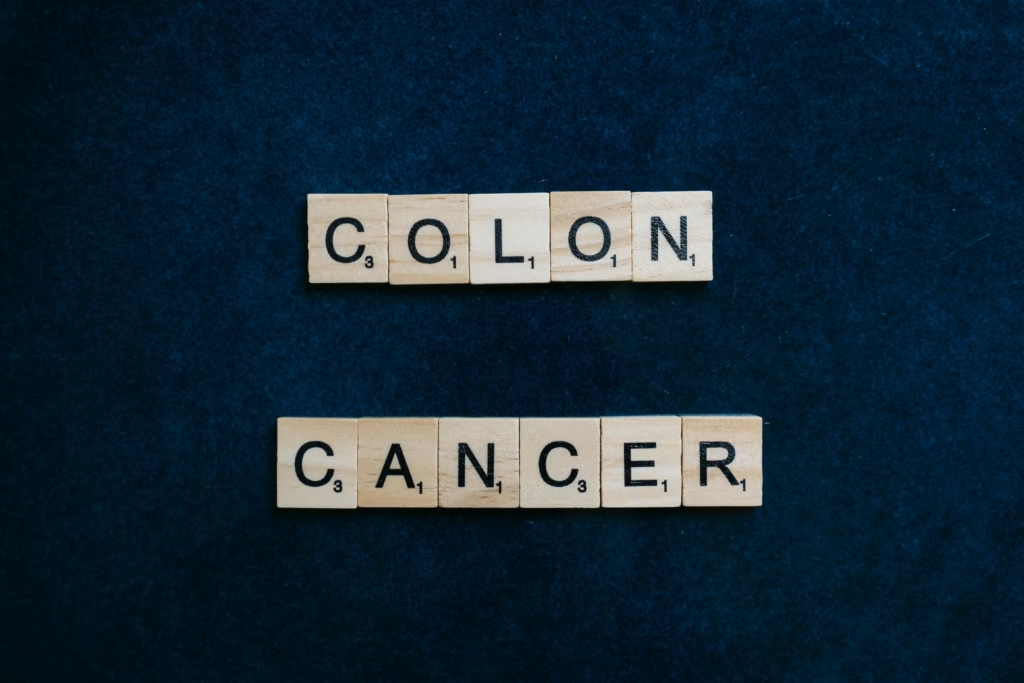
🚨 Colon Cancer Rising Among the Younger Generation: 5 Risk Factors You Can Control
📅 Updated: August 29, 2025
For decades, colon cancer was considered a condition that mostly affected people over 50. Screening guidelines, awareness campaigns, and treatment strategies were largely aimed at older adults. But in recent years, a surprising and concerning trend has emerged: colon cancer rates are rising among younger adults.
According to health experts, this shift isn’t just a statistical blip—it’s part of a global pattern. The World Health Organization (WHO) has even projected a significant increase in colon cancer cases and deaths worldwide by 2040, with younger populations contributing more heavily to these numbers.
The good news? While you can’t change your genetics or family history, you can take control of many lifestyle-related risk factors that strongly influence your chances of developing colon cancer. This means that the choices you make every day—what you eat, how active you are, and whether you smoke or drink—could make a huge difference in protecting your long-term health.
In this article, we’ll explore five major risk factors for colon cancer that are within your control, why they matter, and how you can take steps to reduce them.
🥗 1. Poor Diet Choices

Your colon’s health is directly tied to what you put on your plate. Unfortunately, modern diets filled with fast food, sugary drinks, and processed snacks are a recipe for digestive trouble and long-term disease.
❌ Diets that raise risk include:
- High intake of processed meats like hot dogs, bacon, sausages, and deli meats.
- Low consumption of fiber-rich foods such as fruits, vegetables, beans, and whole grains.
- Overreliance on refined carbs and sugary foods, which cause blood sugar spikes and promote inflammation.
✅ How to reduce risk:
- Swap out processed meats for lean proteins like fish, chicken, or plant-based sources such as lentils and tofu.
- Aim for at least 25–30 grams of fiber daily by including oats, brown rice, chia seeds, and leafy greens in your meals.
- Add colorful vegetables and fruits to your plate—they contain antioxidants that protect your cells from damage.
⚖️ 2. Obesity

Excess body weight is more than just a cosmetic concern—it’s a serious health risk. Studies have shown a strong connection between obesity and colon cancer, particularly when fat is concentrated around the abdomen.
Why obesity increases risk:
- It promotes chronic inflammation, which damages cells and makes them more likely to turn cancerous.
- Obesity disrupts insulin regulation, creating an environment where abnormal cells can grow faster.
- It alters hormone levels, which can affect how the colon functions.
✅ How to lower risk:
- Focus on balanced meals instead of extreme diets.
- Incorporate regular exercise—something as simple as a brisk 30-minute walk each day helps maintain a healthy weight.
- Monitor your waistline, not just your scale weight. Abdominal fat is especially harmful.
🛋️ 3. Sedentary Lifestyle

Sitting has been called the “new smoking”—and for good reason. A sedentary routine, where most of the day is spent sitting at a desk, in a car, or on the couch, is linked to a higher risk of colon cancer.
Why inactivity is dangerous:
- It slows down digestion, allowing waste products to stay longer in the intestines.
- It weakens the immune system.
- It contributes to weight gain, which, as we’ve seen, further elevates risk.
✅ How to stay active:
- Aim for at least 150 minutes of moderate exercise per week—walking, cycling, swimming, or dancing all count.
- Break up long sitting periods with standing breaks or short stretches every hour.
- Take small steps like choosing stairs over elevators or walking during phone calls.
🚬 4. Smoking

When most people think of smoking, they think of lung cancer. But cigarette smoke spreads harmful chemicals throughout the body, including the digestive system.
How smoking impacts colon health:
- Tobacco carcinogens can trigger the growth of precancerous polyps.
- Long-term smokers are at much higher risk of colon and rectal cancer.
- Smoking damages blood vessels, reducing oxygen supply and slowing healing.
✅ How to quit:
- Use nicotine replacement therapies (patches, gums, lozenges).
- Join a support group or quit program to stay motivated.
- Replace the habit with healthier stress relievers like meditation, exercise, or journaling.
🍷 5. Alcohol Consumption

Alcohol is another lifestyle factor that plays a big role in colon cancer risk. Drinking excessively damages the colon lining, alters gut bacteria, and contributes to inflammation.
❌ Risks of heavy drinking:
- Greater chance of DNA damage in colon cells.
- Weakened immunity, allowing cancer cells to spread.
- Higher likelihood of other cancers, including liver and breast.
✅ Safer drinking habits:
- Limit intake to no more than one drink a day for women and two for men.
- Try alcohol-free alternatives like kombucha, sparkling water with lemon, or herbal teas.
- Seek professional guidance if cutting back is difficult.
🌍 The Bigger Picture
Colon cancer has become the second leading cause of cancer-related deaths worldwide. With its sharp rise among people in their 20s to 40s, the issue is no longer confined to “older adults.” The WHO predicts that by 2040, cases will continue to surge unless urgent changes in lifestyle and healthcare awareness are made.
But the hopeful reality is that lifestyle habits matter enormously. Unlike some cancers that are almost entirely genetic, colon cancer risk is highly influenced by diet, weight, activity, smoking, and alcohol use—all of which are within your power to change.
🧠 Final Takeaway
Colon cancer is no longer only an “older person’s disease.” Many people in their early and middle adult years are being diagnosed, but several of the causes are lifestyle-driven and preventable. Every healthy decision you make today—whether it’s adding more vegetables to your meals, quitting smoking, or moving your body more—can dramatically reduce your future risk.
By taking proactive steps now, you’re not just protecting your colon—you’re investing in a longer, healthier, and more vibrant life.
❓ Frequently Asked Questions (FAQ)
🔹 1. At what age should you start colon cancer screening?
Most guidelines recommend starting colon cancer screening at age 45, but if you have a family history of the disease or other risk factors, your doctor may suggest starting earlier.
🔹 2. Can colon cancer be prevented completely?
Not entirely, since genetics play a role. But adopting a healthy diet, staying active, avoiding smoking, and moderating alcohol can significantly lower your risk.
🔹 3. What are the early warning signs of colon cancer?
Some common signs include:
- Blood in stool
- Unexplained weight loss
- Persistent abdominal pain
- Changes in bowel habits (diarrhea, constipation)
If you notice these symptoms, consult a doctor immediately.
🔹 4. How common is colon cancer in young adults?
While colon cancer is still more common in older adults, cases among people under 50 have been steadily rising. This makes awareness and prevention crucial at every age.
🔹 5. Does exercise really help prevent colon cancer?
Yes! Regular exercise boosts digestion, reduces inflammation, and supports immune function—all of which help lower cancer risk.